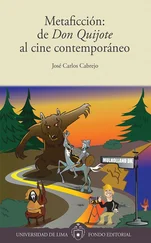Yury was packed.
By the time our peroxider had gathered her halter and mini and arose — she’d ascended — upon her pleather stilettos, “the friend” had seeped through his pants.
So was she still named Natasha? or was she Molly [from] Darabani, as she was posted last week? or was she Poly [sic] Sofia, as the commentariat corrected? but what about this Obsessa O’dessa —is it me, or did I take ballet class with her?
Anyway, her name was never Natasha —she’d given “the friend” the name of a friend.
In their vignette, “the friend” called himself Greg.
Now Natasha did it for the rush, Molly out of desperation, and Poly liked the cash — but what about the girl who bore them all, gravid with their shame?
She did it for the hope.
These women lived in hope, they lived for the future as if they were every one of them already characters in a movie that projected well beyond one orgasm’s duration — a movie of constant orgasm being constantly filmed: a wishful collectivist biopic accumulating footage — incessantly accumulating reels and gigabytes of footage — for all that dirty work of editing into coherence and happy endings somewhere years from now and countries away.
They lived as the aspiring stars of the movies of their own lives, which themselves contained the movies of others (much as nuclear reactors contain their cores):
Like the Innocent boy from around the block movie about an Innocent boy from around the block who begins driving a better sportscar and sporting better muscles, crucified in a black leather jacket, hung with gold chains (though he sold heroin substitute, though it was said he sold women — look how motivated he is, look how rich— Innokenti, I remember when we both were just kids ).
Like the movie about the defense contractor billionaire who’d financed a production of his own out in northeastern Randomstan, but without even filming it, with epic thousands of extras but no cameras or crew: it’d been a Passion play, one night only staged on the steppe, ever since being nearly hazed to death as an Air Force mechanic he’d wanted to experience that many people taking orders from him — the one about the former bricklayer turned gas refinery tycoon who, to repent for having inflicted Orthodox baptism on his ten year old stepdaughter (and to mortar his relationship with her mother, a lingerie importer), had bought the girl her own television broadcast: she’d babble to the world about her friends, boys, school, and sport for an hour each night at eleven — the port concessions magnate who’d financed a judge’s vanity recording of Liszt — the financial services mogul who’d commissioned a mural of his transgender mistress/master for a flank of his bank — the politician who’d hired a Muscovite screenwriter to ghostwrite a book exposing the corruption of his, the screenwriter’s, uncle, a Navy embezzler who’d sunk submarines: the nephew took the work, he was broke.
This was an ambitious time and the girls knew their movies — they knew those had by hearsay or passed down the bulvar as well as they knew those of their siblings and intimates — they traded their stakes and plot points and narrative arcs — they quoted from them until they couldn’t separate the quotes from their own conversation — they repeated and repeated them, you couldn’t avoid them, you can’t avoid summary — they even ambitiously invented them to reinvent themselves:
A man thrashed his wife whose head spurted oil — another billion, trillion — googillionaire. A man from the next town over, it was said, always just the next town, battered the gut of his pregnant wife and their son was born fluent in C++ and Chinese. Soon he had women at his door lining three deep, begging him to go to work on their issue. Then yet another nouveau oligarch who’d kickstarted his fortune marketing fire extinguishers throughout the Baltics or Balkans, parlaying that lode into funding lucrative eCommerce interests — it was said (apparently, it even made international headlines), he intended to launch a blue whale into space and was designing a shuttle whose fuselage would be equipped with a seawater tank. Once safely in orbit, the tank’s hatch would open, releasing the water and whale to float dead forever in blackness — our earth a bruise the size of its eye …
But the most successful of these movies, the widest cited, it seemed — whenever a teacher assigned the composition theme of Hope, whenever any of the girls skipped their composition tutorials to hitchhike to the gorge for a swim only because they were young with plombir skin and fit and ruthless and happened to spot speeding from the opposite cardinality a vehicle as red as (some of these epithets were used, others are fictitious) “the Soviet flag,” “a fire siren,” “the covers of the Russian passport,” “menarche”—was this, was the story of “Mary Mor.”
Which is also the story of the unpopular Hollywood film Sleepwaker V, dir. Edison Lips, 1998.
Sleepwaker V is the most famous but also only film of this “Mary Mor,” who does not star in it with her name shining pointedly above the title, but plays Hotty #3, whose total screentime is ≤ forty-five seconds.
“Hotty Mor” as she was called — with the accents of these tellings a binomial classification perhaps best transliterated as Chotty Mor or Khoti Mor —was a success story to trump all success stories, her movie widely heard of but seldom seen — it became more potent the longer it went unviewed, as if an ineffable dictator.
She was a model of what every girl wanted — not just an actress, was she a model too?
Her recent naturalization by the United States government revealed her to be Toyta Dzhakhmadkalova — and this attempted journalism, this inept investigative reporting, is dedicated to her.
She was born atop a tiny speck of static blown just outside Vedeno, Vedensky District, Chechnya, a mudspot like a mortifying stain on the dress of the land. Must be laundered, must be treadwashed by tanks. Russian was not her native language, she had no dialogue, she was frequently silent. Her home, an apartment complex hastily built to gird Vedeno’s outskirts, has been almost totally destroyed. It was, by the time of her leaving, that proverbial heap of concrete surrounded by field the color of a suicidebombed circus and the miry consistency of mad tigress dung. The following things, things being weaknesses, made her cry: faded wallpaper in a scythe pattern similar to what they had in the kitchen of her family’s apartment (but every family had similar wallpaper), last cigarettes not shared, dying ficus placed by unsunned windows (in apartments where none of the windows were sunned), cold tea — and now, for the uninitiated, the briefest of history lessons: border skirmishes by separatist guerrillas vs. Russians, Russian army incursions, hilariously vituperative decades of on again off again conflict you might’ve caught on television or not.
It has not been recorded — how Toyta found her way to Grozny (lit. terrible ), capital of the Chechen Republic, following the First Chechen War. Perhaps she was there visiting a relative close or distant, the aunt of her aunt she called aunt too, the wife of a father’s friend from hydroelectric engineering school she called Peacock — because of the woman’s plumage, the feather she tied to her braid — but privately. Supposed to meet her at the bus terminal. Never knew which three o’clock train. Nor is it known how Toyta was supposed to have supported herself. Whether she cooked for monks or did laundry for a nearby madrassa, whether she cleaned floors for whatever government offices were left or washed windows in what official residences in the diplomatic quarter hadn’t been razed. What retails as fact is that one night in an impromptu Grozny discotheque (formerly a dairy) she met a Russian soldier — cleancut, tightbodied, tightclothed in uniform plus mufti sneakers — who managed through bribing a general it must have been to bring her back to the site of his patriarchate: 180 kilometers outside Moscow and then, for a weekend, to Moscow Herself, neighborhood Ostankino, where a comrade soldier also discharged had an uncle who commanded a balcony over Zvyozdny (but the uncle spent whole months what was characterized as consulting in Crimea).
Читать дальше












